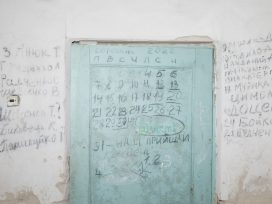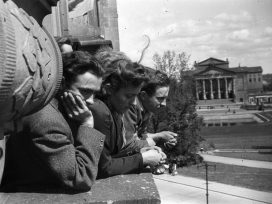‘Science is cool’
Expectations, standards, and requirements in higher education vary from country to country. In the third episode of the Knowledgeable Youth podcast Ukrainian students embark on the complex subject of tertiary education.
Due to differences in school systems between Ukraine and Austria, Ukrainian adolescents often enter university earlier than Austrian students. This episode of the Knowledgeable Youth podcast discusses the variations in higher education. The students’ conversation centres around Agata Zysiak’s article ‘Bleaching Blue Collars’ that draws insights from the experiences of first-generation students under state socialism in Poland and the barriers they faced when trying to enter university. The students share their own thoughts about entering university and the difficulties and challenges they might encounter in Vienna.
Listen to the episode right here:
Socialist reform and modernization in post-WWII Poland opened the higher-education gate to underprivileged students. But early streaming to vocational school and societal expectations remained as barriers. What became of the working-class freshers who made it to the lofty heights of academia?
Published 8 August 2024
Original in English
First published by Eurozine
Contributed by RECET © Eurozine
PDF/PRINTIn collaboration with
In focal points
Newsletter
Subscribe to know what’s worth thinking about.
Related Articles

Russia’s full-scale invasion of Ukraine is entering its fifth year. With peace negotiations at a standstill, traumatized communities face a tough question: What does it mean to memorialize a war when its end is nowhere in sight? War crime survivors from Yahidne are actively engaging in how their mass confinement is remembered.

Despite the uncertainty of recovery from ongoing war, Ukrainians are confronting Russian destruction and de-construction with daily acts of reconstruction. Marginalized landscapes, histories and stories are being rediscovered through a grassroots resistance founded on loss, where language and naming reclaim cultural foundations.






